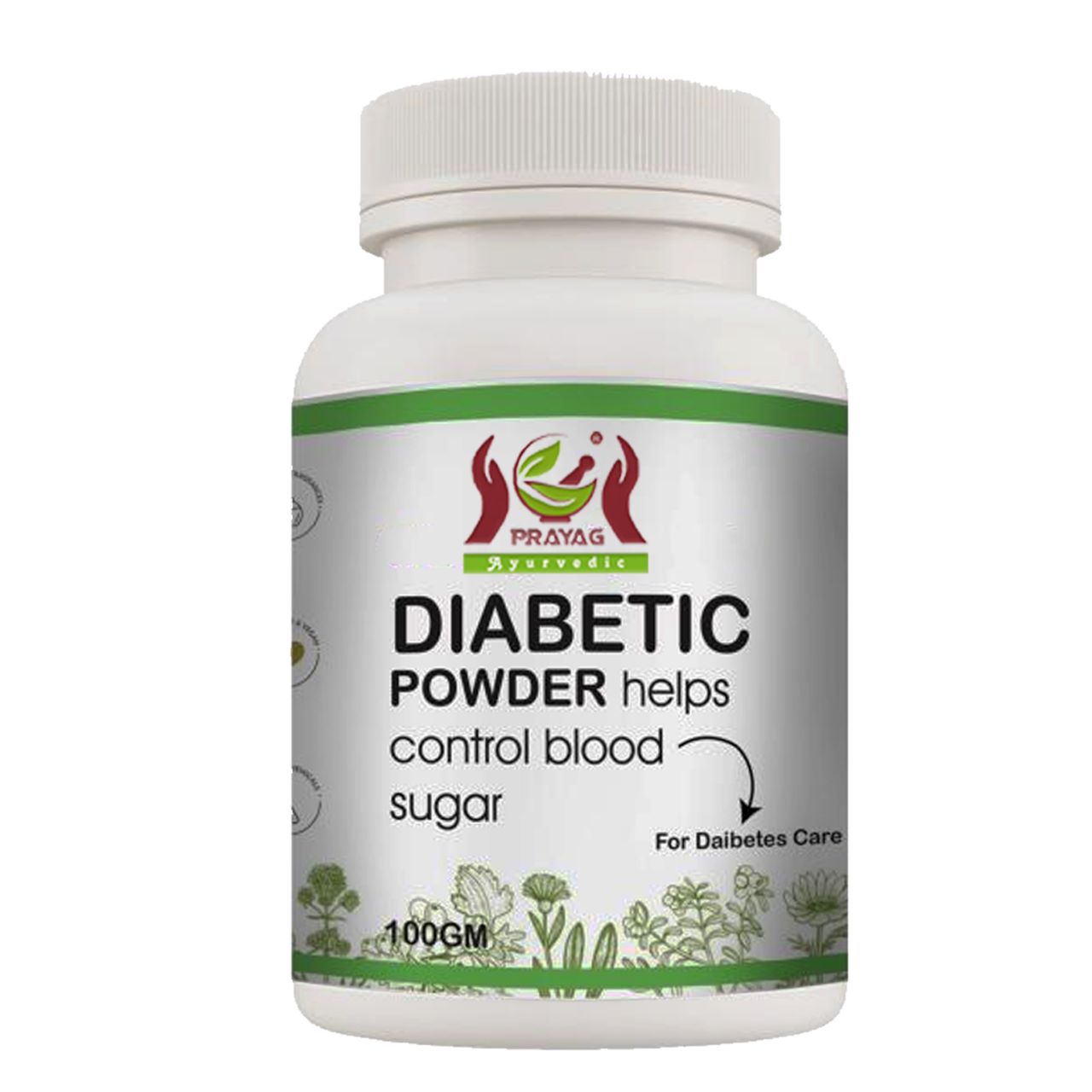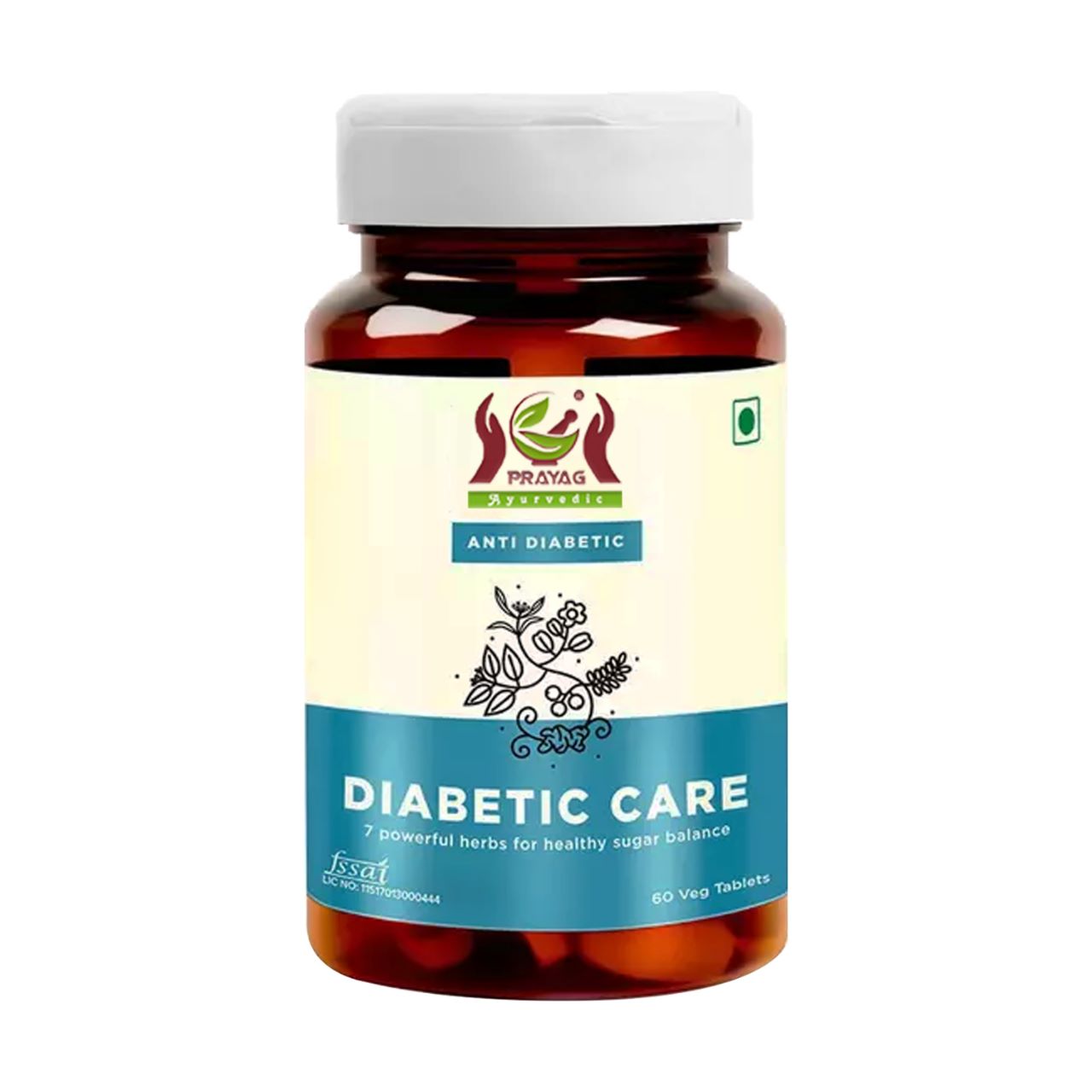- Free Shipping | COD Available | 100% Herbal
Sale!
Prayag Diabetes Cure Kit ( Powder + Capsule)
Original price was: ₹3,999.00.₹2,550.00Current price is: ₹2,550.00.
+ Free Shipping- Help Controlling type 1 and type 2 Diabetes
- Help in Reducing Hyperglycemia (High Blood Sugar ) and its Associated symptoms
- Maintains Normal Glucose Level
The most available anti-diabetic products only relieve the symptoms, not the cause. Prayag Ayurvedic provides a good and lasting effect to control diabetes. After one course, diabetes gradually disappears, all bodily functions are restored, and metabolic disorders are completely resolved. The positive effects of Prayag Ayurvedic were confirmed during clinical trials. It has been proven that Prayag Ayurvedic is safe for your health and has no side effects or side effects. I recently introduced Prayag Ayurvedic to most of my patients and got excellent reviews about its effectiveness.
What is the Diabetes
Diabetes is a disease in which your blood glucose, or blood sugar, levels are too high. Glucose comes from the foods you eat. Insulin is a hormone that helps the glucose get into your cells to give them energy. Millions of people around the world live with diabetes or know someone
living with diabetes. Regardless of the type of diabetes, diabetes isn’t yet a curable disease. However, it is a very treatable disease, and no matter how frightening, annoying, and frustrating it can be, people with diabetes can live long, healthy, and happy lives. Our goal is to provide you the
information, tools and resources to help make that happen.
There are two main kinds of diabetes: type 1 diabetes and type 2 diabetes. More than 90% of all people with diabetes have type 2. Overall, more than 3 million Canadians have diabetes, and the number is rapidly rising. Over a third of people with type 2 diabetes are unaware they have the disease and are not receiving the required treatment because, for many people, early symptoms are not noticeable without testing.
- Type 1 diabetes The more severe form of diabetes is type 1, or insulindependent diabetes. It’s sometimes called “juvenile” diabetes, because type 1 diabetes usually develops in children and teenagers, though it can develop at any age
- Type 2 diabetes The most common form of diabetes is called type 2, or noninsulin dependent diabetes. This is also called “adult onset” diabetes, since it typically develops after age 35. However, a growing number of younger people are now developing type 2 diabetes. Type 2 diabetes, once known as adult-onset or noninsulin-dependent diabetes, is a chronic condition that affects the way your body metabolizes sugar (glucose), your body’s important source of fuel.
Causes
Type 1 diabetes is an autoimmune disorder. It’s believed that a combination of genetic predisposition and additional environmental (as yet unidentified) factors provoke the immune system into attacking and killing the insulin-producing cells in the pancreas. There is no way
to prevent type 1 diabetes from occurring.
Type 2 diabetes is mainly caused by insulin resistance. This means no matter how much or how little insulin is made, the body can’t use it as well as it should. As a result, glucose can’t be moved from the blood into cells. Over time, the excess sugar in the blood gradually poisons the pancreas causing it to make less insulin and making it even more difficult to keep blood glucose under control. What are the symptoms of diabetes? Both types of diabetes, if not controlled, share many similar symptoms, including:
- Frequent urination
- feeling very thirsty and drinking a lot
- feeling very hungry
- feeling very fatigued
- blurry vision
- cuts or sores that don’t heal properly
What are the risk factors for type 1 and type 2 diabetes?
Risk factors for type 1 diabetes include:
- Family history: People with a parent or sibling with type 1 diabetes have a higher risk of developing it themselves.
- Age: Type 1 diabetes can appear at any age, but it’s most common among children and adolescents.
- Geography: The prevalence of type 1 diabetes increases the farther away you are from the equator.
- Genetics: The presence of some genes point to an increased risk of developing type 1 diabetes.
Risk factors for type 2 diabetes
- have prediabetes (slightly elevated blood sugar levels)
- are over age 45
- have ever had gestational diabetes, which is diabetes during pregnancy
- have polycystic ovarian syndrome
- have a lot of belly fat







Reviews
There are no reviews yet.